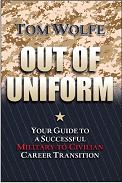Most people are familiar with the five P's of task accomplishment: Prior Planning Prevents Poor Performance. When it comes to career transition and job-hunting, however, there are six additional P's to consider.
 Career Transition elicits a broad range of emotions. From elation to frustration,
from glee to disappointment, from pleasant surprise to disbelief — the typical job
seeker will likely experience it all. Keeping the Six P's in mind will help you
maintain your perspective during this wild ride and enhance your chances of a successful
landing. Let's take a quick look at each of the Six P's: patience, persistence,
professionalism, presentation, politeness, and preparedness.
Career Transition elicits a broad range of emotions. From elation to frustration,
from glee to disappointment, from pleasant surprise to disbelief — the typical job
seeker will likely experience it all. Keeping the Six P's in mind will help you
maintain your perspective during this wild ride and enhance your chances of a successful
landing. Let's take a quick look at each of the Six P's: patience, persistence,
professionalism, presentation, politeness, and preparedness.
Patience — Things will rarely happen as quickly as you would like and you will need to be patient as you go about your job search. Your priority list will never be the same as that of a potential employer. You have your agenda and employers have their own. It is highly likely that the only time in your search when the time line is too fast for you is when you get a job offer and they want an answer quickly!
Persistence — At first glance, this would seem at odds with being patient. Learning how to balance the two is one of your transition tools. Although that tool starts out a little dull, it will be finely honed by the time your search is over. Being persistent means not giving up, but it also means riding the fine line between demonstrating your level of interest and becoming a pest.
Preparedness — Going into the job search with a high level of knowledge will eliminate many problems before they have a chance to arise. Knowledge of the organization, knowledge of the position and, most importantly, a high degree of self-knowledge are among the most critical elements of any successful career transition.
Professionalism — Do the right thing. Do what you say you will do. Follow-up. Be on time. Return the calls. Honor the timelines and deadlines. Get the application form in on time. Write the follow-up letters. Change your voice mail message. Be respectful. This one is easy for most military service members.
Presentation — Look the part. Dress appropriately. Live up to the grooming and appearance standards that are expected of you. First impressions are important, but it does not stop there. Lasting impressions equate to memory, and being memorable matters in an interview. Speak clearly and with confidence, while maintaining your humility. Remember also the messages that are conveyed by eye contact and body language.
Politeness — Be courteous. Say thanks. Smile. Look people in the eye. Just because someone is sitting in the guard shack or at the reception desk does not mean they are not important. Many organizations go out of their way to see what the administrative and clerical people think about a prospective employee.
There are no earth-shattering revelations here, just common sense and common courtesies. Sometimes however, stressful situations cause us to loose touch with the basics. Remembering the Six P's is a good way to stay grounded during your career transition period.
Comments or questions regarding this column or any career transition topic? Feel free to contact me: tom@tomwolfe-careecoach.com.
© 2012; Tom Wolfe, author; all rights reserved; excerpts from Out of Uniform: Your Guide to a Successful Military-to-Civilian Career Transition; used with the permission of the author and publisher, www.potomacbooksinc.com.

